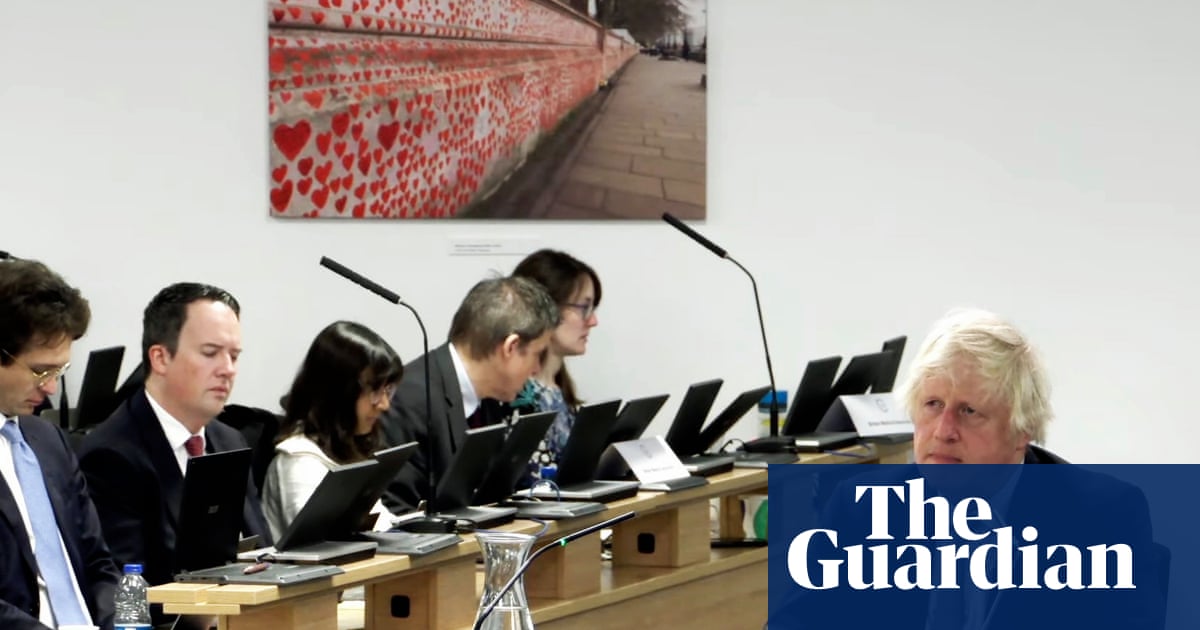
Boris Johnson has sought to persuade mutinous Conservative backbenchers to support his plan for a new coronavirus lockdown across England, saying that failing to act now would risk the “medical and moral disaster” of an overwhelmed NHS.
Addressing the Commons about his plans for a four-week shutdown starting on Thursday, the prime minister also rejected the idea he had been too slow to act, saying it had been right to first try a regional system of different tiers of restrictions.
But in response, Keir Starmer accused Johnson of consistently being “too slow and behind the curve” in his decisions on Covid, which amounted to a significant failure of leadership.
While Labour has pledged to back the new measures in the Commons, all but guaranteeing they will pass, a number of Conservatives have expressed opposition to the planned closure of hospitality businesses and most retail, among other temporary rules.
But Johnson said scientific predictions about the “remorseless advance of this second wave” meant the lockdown was inevitable.
“Faced with these latest figures, there is no alternative but to take further action, at a national level,” he told MPs. “I believe it was right to try every possible option to get this virus under control at a local level, with strong local action and strong local leadership.
“And I reject any suggestion that we are somehow slower in taking measures than our European friends and partners.”
Directly addressing the Tory malcontents, Johnson said: “To those in this house who believe we should resist further national measures, let me spell out the medical and moral disaster we face.”
This would he said, lead the the “disaster” of the NHS being overwhelmed, affecting not just coronavirus patients, but those with other ailments and needs.
He said: “The sick would be turned away because there was no room in hospitals. That sacred principle of care for anyone who needs it, whoever they are, and wherever, whenever they need it, could be broken for the first time in our lives.
“Doctors and nurses could be forced to choose which patients to treat, who would live and who would die.”
In response, some MPs said they would vote against the measures on Wednesday. Charles Walker, the senior backbencher who represents Broxbourne in Hertfordshire, said a negative vote was his only way of dissenting “as we drift further in to an authoritarian, coercive state”.
Another senior backbencher, Bernard Jenkin, said he would back “the bitter medicine” from the prime minister, saying: “Nobody has put forward a viable, immediate alternative that would avoid the overwhelming of the NHS.”
Jenkin asked Johnson to commission a white paper to set out a “plan for living with coronavirus”, and called for a revamp of the test-and-trace system, including a new boss to replace Dido Harding.
Johnson also sought to reassure his critics, saying support for self-employed people would be doubled from 40% to 80% of trading profits. This was, he said, not “the full-scale lockdown of March and April”, and he guaranteed parliament a vote on what happens next when the regulations expire on 2 December.
But Starmer – who had advocated a two-week “circuit-breaker” lockdown coinciding with the just-ended half term – said the delay meant the measures would need to be longer and tougher.
“At every stage the prime minister has been too slow and behind the curve,” the Labour leader said. “At every stage, he has pushed away challenge, ignored advice and put what he hoped would happen ahead of what is happening. At every stage he has over-promised and under-delivered.”
Starmer said Johnson’s decision to reject the advice from his scientific advisers in September that a circuit breaker was needed amounted to “a catastrophic failure of leadership and of judgment”.












